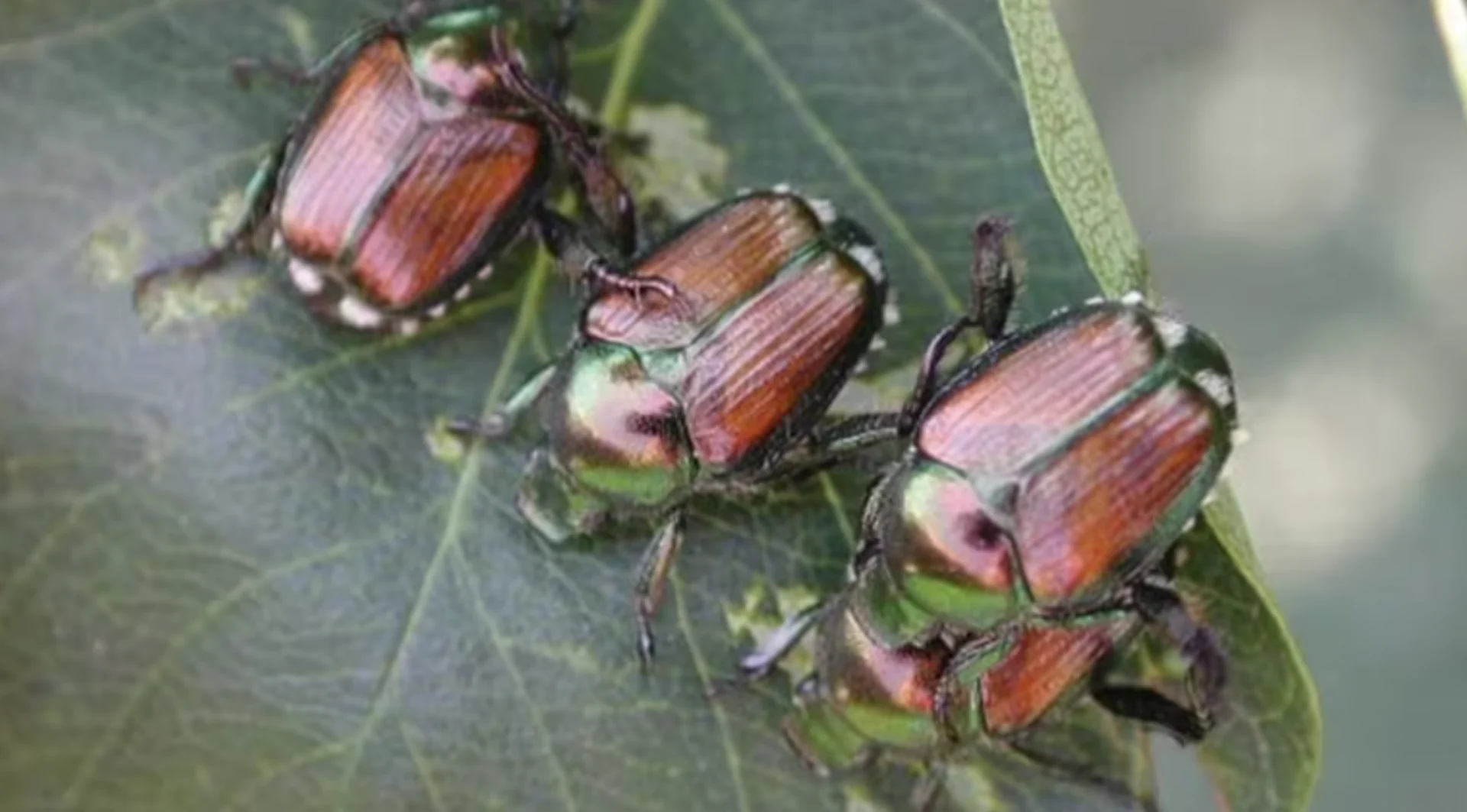
Hungry Japanese beetles a growing problem in parts of N.S.
The population of Japanese beetles in Nova Scotia is growing and that's contributing to the death of plants and fruit crops in parts of the province.
The beetles are an invasive species in the province and the current infestation is raising concerns.
Bernie Thorne, a grape grower in Berwick and the vice-president of the Grape Growers Association of Nova Scotia, said the beetles, which are fairly new to the Annapolis Valley, are hungry enough to do some damage.
"There's enough population there at that point that they can just continue munching away," Thorne said to CBC's Maritime Noon. "And any new plantings that you've put in, they can pretty well destroy it or at least set you back a few years. They are quite damaging."
Increased population in the last decade
Thorne says the beetles will mate and embed eggs into the soil once they find a good food source. The adults die off by the end of summer and a new generation of beetles will come from the soil the following spring.
SEE ALSO: Wasps are aggressive right now; here's why and how to stay safe
These beetles have existed in Nova Scotia for nearly a century. But Debra Moreau, an entomologist in the Department of Agriculture and Agri-food Canada, says the population has only recently increased.
"I would say within the last 10 years, we've started to see it move outside of those sort of localized areas and actively spread through the province of Nova Scotia," said Moreau. "We found last year, we had higher populations than we had seen in preceding years and this year, higher still."
Andrew Hebda, a retired curator with the Nova Scotia Museum of Natural History, says a warming climate is part of the problem. While the beetles used to emerge in July, they are now emerging months earlier.
"Since April, May and onwards, it has been unusually hot," said Hebda. "The warmer it is, the more active they are."
WATCH: This winter was by far the warmest on record in Canada
Efforts to mitigate effects
Hebda says the problem won't go away on its own, especially as warming weather becomes more frequent. He says mitigation efforts ultimately come down to proper management of these insects.
"What you have to do is try to find some way to minimize the impact they're having," he said.
"Picking him off by hand, it takes a bit of work, takes a bit of time, but you can control them that way and you can enjoy your garden and your plants that way."
DON'T MISS: They're white, they're fuzzy, and maybe you shouldn't touch them
While larger and more commercial farms can get access to chemicals that deter these insects from eating and killing crops, some farmers like Thorne prefer to use soap and water to remove the beetles off his grape plants.
"If they're just left alone, they will cause damage to the crops. So, there's a point where economically, we have to take action and I've experienced that for the last two years," said Thorne.
Thumbnail image credit to CBC News.
This article, written by Meig Campbell, was originally published for CBC News.









